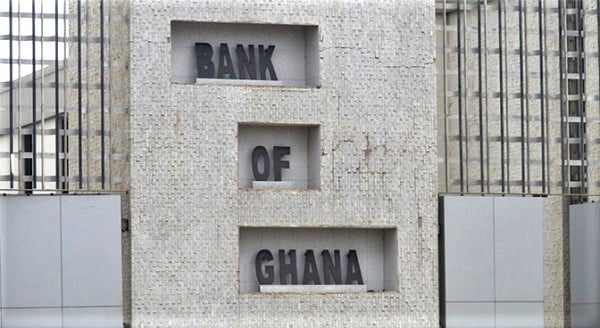The Bank of Ghana (BoG) has emphatically reiterated its stance on the exclusive use of the Ghana Cedi as legal tender for all domestic transactions within the country. In a recent public notice, the central bank underscored the illegality of pricing, advertising, receiving, or making payments for goods and services in any foreign currency, particularly the US dollar, within Ghana’s borders. This prohibition is firmly grounded in the Foreign Exchange Act, 2006 (Act 723), which mandates the Cedi as the sole legal tender for all domestic economic activities. The BoG’s notice serves as a stark reminder to all individuals, businesses, and institutions operating within Ghana of their legal obligation to conduct all transactions in the local currency. This directive aims to reinforce the existing legal framework and curb the increasing tendency to utilize foreign currencies, especially the US dollar, in everyday transactions, a practice that undermines the Cedi’s value and stability.
The BoG’s directive explicitly outlines the scope of the prohibition, encompassing a wide range of common transactions. These include fundamental areas such as school fees, transactions related to vehicles (sales and rentals), real estate dealings, airline ticket purchases within Ghana, domestically executed contracts, retail shopping activities, online sales within the country, hotel accommodations, and associated services. This comprehensive list emphasizes the breadth of the prohibition and leaves no room for ambiguity regarding the types of transactions covered by the law. The central bank’s message is clear: regardless of the nature of the transaction, if it occurs within Ghana’s borders, the Ghana Cedi must be the currency used.
The BoG acknowledges specific exceptions to this rule, primarily concerning transactions involving expatriates or non-residents of Ghana. In these cases, foreign currency invoicing is permissible, provided the proceeds from such transactions are deposited into a designated Foreign Exchange Account (FEA) held with a licensed bank operating within Ghana. This provision allows for the practicalities of international transactions while maintaining regulatory oversight and ensuring the channeling of foreign currency through the formal banking system. Furthermore, the BoG mandates that exchange rates applied to such invoices accurately reflect the prevailing market rates offered by commercial banks and are benchmarked against the BoG’s officially published reference rate. This stipulation prevents arbitrary rate setting and ensures fairness and transparency in transactions involving foreign currencies.
The central bank’s directive also addresses concerns regarding legitimate external payments. It assures the public that the transfer of foreign exchange through the banking system remains permissible for such payments, subject to existing regulatory thresholds and the internal processes of commercial banks. This clarifies that the restrictions are targeted at domestic transactions and do not impede legitimate international financial activities. However, individuals and businesses are expected to adhere to the established regulations governing foreign exchange transactions and comply with the due diligence procedures implemented by commercial banks.
To ensure the effectiveness of this directive, the BoG has affirmed its commitment to enforcing the Foreign Exchange Act. The notice warns that continued violations will attract sanctions and appropriate legal action, in line with the provisions of the law. This serves as a deterrent and underscores the seriousness with which the central bank views unauthorized foreign currency dealings. The BoG’s proactive stance signifies its dedication to maintaining the integrity of the financial system and protecting the value of the Ghana Cedi. This commitment to enforcement is crucial for achieving the desired outcomes of stabilizing the currency and promoting confidence in the domestic economy.
The BoG’s recent directive represents a significant step in its ongoing efforts to strengthen compliance with Ghana’s foreign exchange regime. By curbing the unauthorized use of foreign currencies in domestic transactions, the central bank aims to bolster the Ghana Cedi’s position as the sole legal tender and maintain its stability. This move is crucial for fostering a healthy and robust domestic economy, where the national currency holds its value and facilitates smooth and transparent economic activities. The consistent application and enforcement of these regulations are essential for achieving the BoG’s objectives and ensuring the long-term stability of the Ghanaian financial system.














